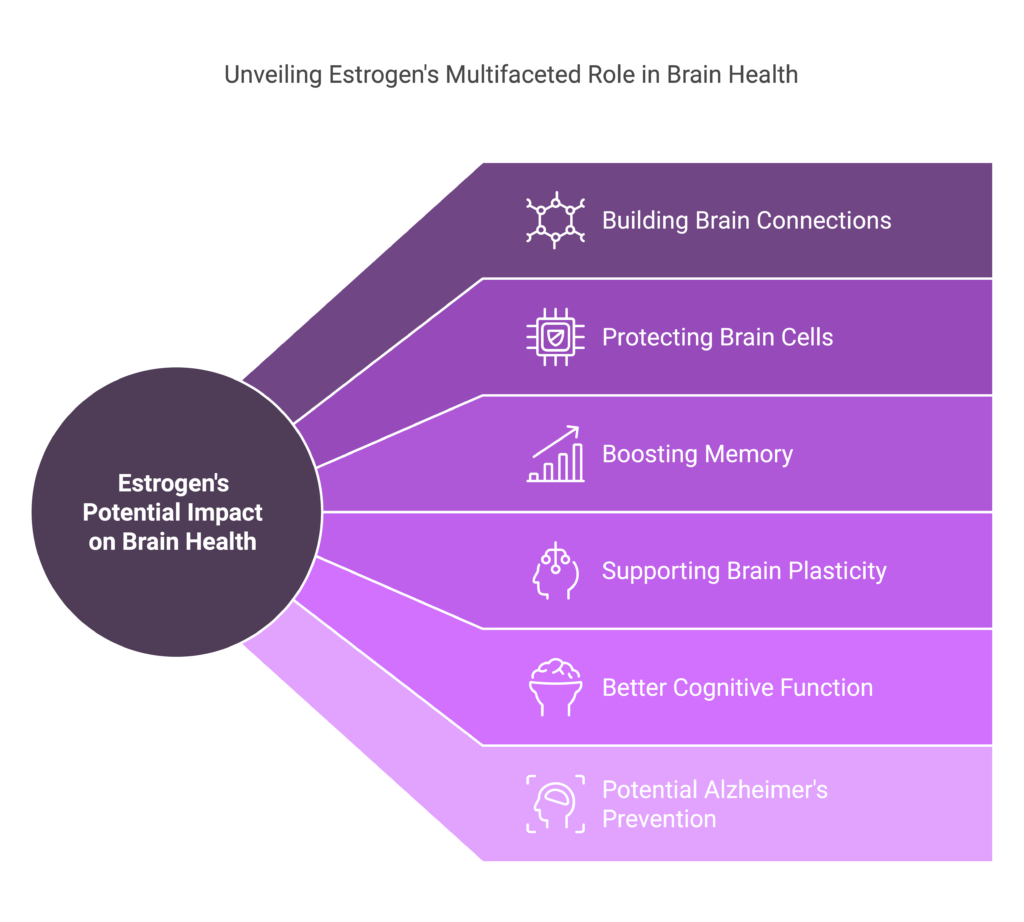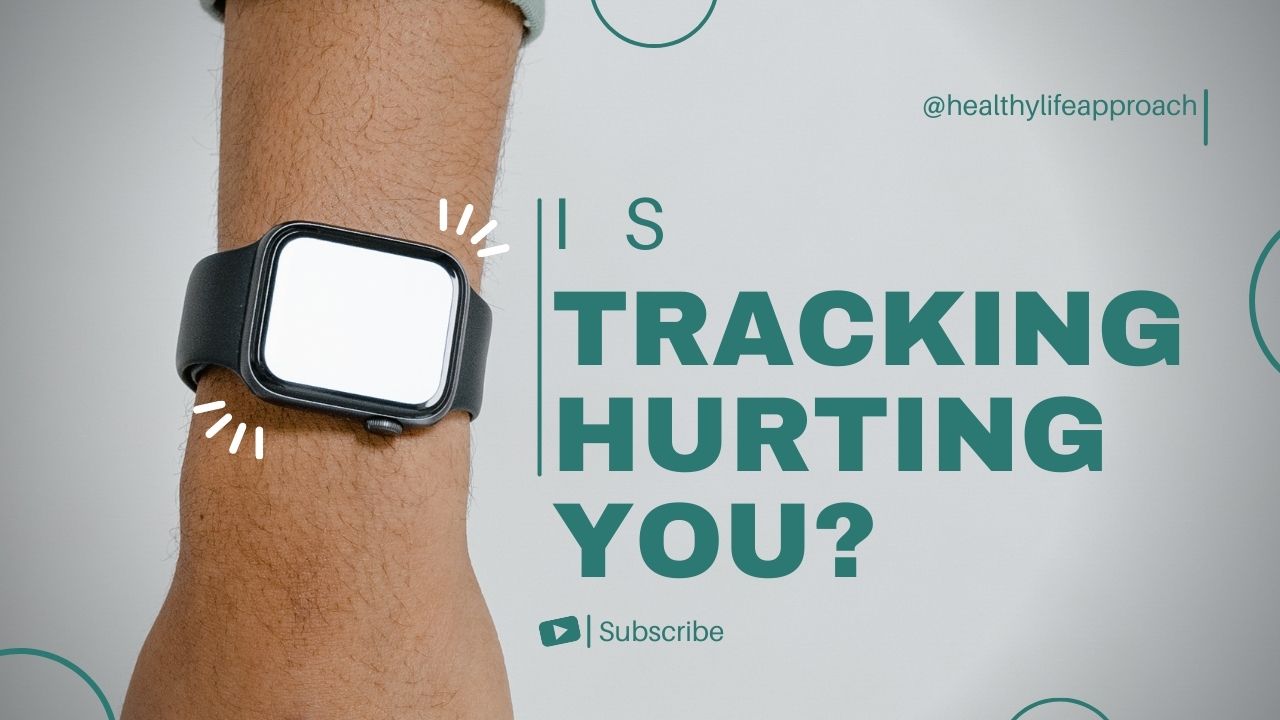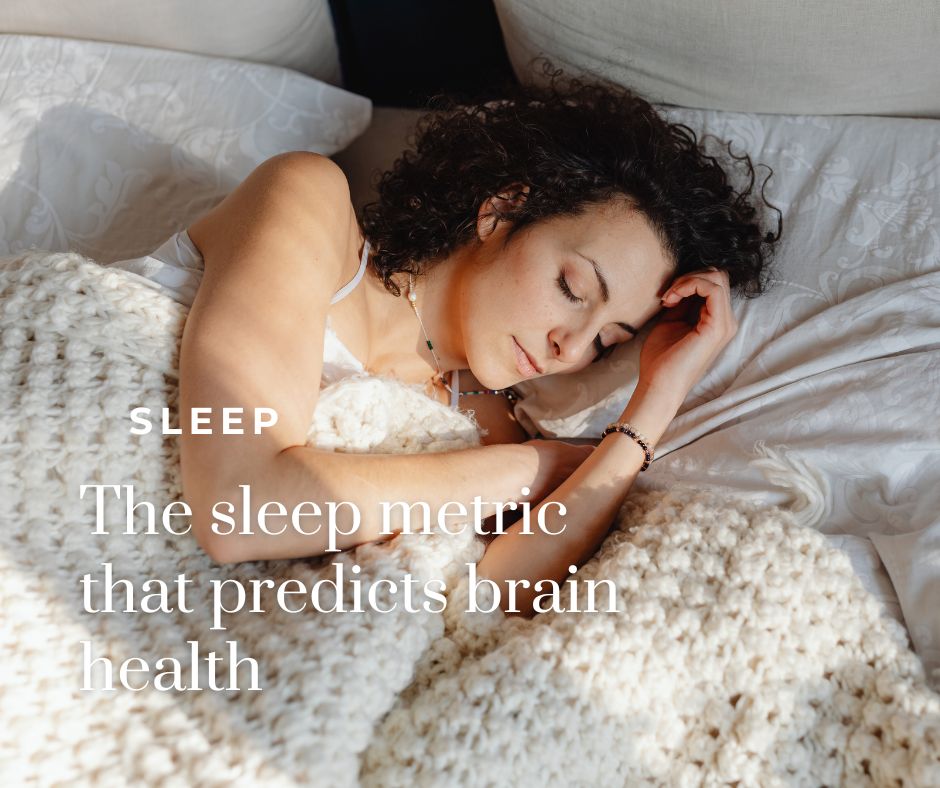
By: Kristen J. Beasley
Estrogen, often associated with reproductive health, plays a crucial role in brain function and cognitive health. I was not given estradiol (which is one of the three forms of estrogen) until 10+ years post hysterectomy. Within two days, I noticed a difference in my energy levels and verbal memory. Since I tried each hormone, estradiol, progesterone, and testosterone as a stack, adding one on top of the other in slow stages, I remember how each impacted me. Let’s break down estrogen’s effects in simple terms:
How Estrogen Helps Your Brain
- Building Brain Connections: Estrogen helps create and strengthen connections between brain cells. It’s like a construction worker building new roads and improving existing ones in your brain city.
- Protecting Brain Cells: It acts as a shield, protecting brain cells from damage and helping them communicate better.
- Boosting Memory: Estrogen mainly helps with verbal memory – remembering words and language-related information.
- Brain Plasticity helps your brain stay flexible and adaptable, making learning new things and adjusting to changes more manageable.
Benefits of Estrogen for Brain Health
- Better Cognitive Function: Women more exposed to estrogen (naturally or through hormone therapy) often show better memory and thinking skills.
- Potential Alzheimer’s Prevention: Some studies suggest that estrogen might help reduce the risk of Alzheimer’s disease, especially if taken at the right time.
- Slowing Brain Aging: Estrogen may help slow the brain aging process, keeping the brain healthier for longer.
Timing Matters When You Start Estrogen and Hormone Therapy
The effects of estrogen on the brain seem to be most beneficial when hormone therapy starts during perimenopause – the transition period into menopause. The timing of hormone therapy is called the ‘critical window’ for treatment.
Key aspects of the ‘critical window’ hypothesis include:
- Optimal Timing: The hypothesis proposes that the ideal time to start HRT is within 10 years of menopause onset or before age 60, which is most beneficial.
- Cognitive Function: Starting HRT during the perimenopausal or early postmenopausal period may have favorable effects on cognitive function and potentially reduce the risk of neurodegenerative diseases like Alzheimer’s disease.
- Cardiovascular Health: The timing of HRT initiation may influence its effects on heart health. When started early in menopause, it may have potential protective benefits.
- Risk-Benefit Balance: The hypothesis suggests that the benefits and risks of HRT may shift depending on when treatment is started, with potentially more favorable outcomes for early initiation.
- Duration of Treatment: Some studies indicate that a longer duration of HRT, when started within the critical window, may lead to more significant benefits.
- Age Considerations: The hypothesis assesses the potential effects of HRT by considering both the time since menopause and the woman’s chronological age.
The critical window hypothesis has gained support from observational studies and some clinical trials. However, a definitive trial to test this hypothesis is not considered feasible due to practical and ethical considerations.
Further Research Needed on Estrogen
While we know estrogen is essential for brain health, there’s still a lot to learn:
- Optimal Treatment: Researchers are working to determine the best timing, dosage, and duration of hormone therapy for brain health.
- Long-term Effects: More studies are needed to understand the long-term impacts of estrogen therapy on the brain.
- Individual Differences: We need to understand better why estrogen affects people differently and how to personalize treatments.
- Alternative Treatments: Research is exploring other ways to mimic estrogen’s beneficial effects on the brain without the potential risks of hormone therapy.
- Male Brain Health: While most research focuses on women, understanding estrogen’s role in male brain health is also essential.
How to Get Your Hormone Levels Tested
Suppose you’re intrigued about how estrogen could impact your brain health. In that case, the best place to start is with a trusted healthcare provider. Consider testing your hormone levels and discussing whether estradiol supplementation might fit into your overall wellness plan.
Function Health (this is a paid referral link) currently does not test progesterone levels. However, they offer a hormone panel for both men and women (see complete list of tests here). Function is a lifelong health platform costing just $42 per month. It provides an all-in-one set of over 100 advanced lab tests twice a year. It includes biomarkers for the heart, hormones, thyroid, liver, kidneys, autoimmune markers, cancer signals, toxins, heavy metals, and more. The labs are available at 2,000 locations across the U.S.
The Function app then tracks your results over time. Function delivers personalized insights from top doctors and action items to improve your health. Each round of testing also includes a full written clinician summary. I use Function Health and love it!
Conclusion and Recommended Reading
Remember, while estrogen shows promise for brain health, it’s crucial to consult with a licensed healthcare provider before considering any hormone therapy. They can help weigh the potential benefits against any risks based on your health profile. If you are interested in learning more about estrogen and brain health, I would recommend the following books:
Also, check out the blog post on Hormone Replacement Therapy: Debunking Common Myths. The information might surprise you. Many women have been fearful of hormone replacement therapy due to the Women’s Health Initiative announcement in 2002.
Join the Movement
Stay informed, get inspired, and connect with a like-minded community of women passionate about brain and hormone health. Subscribe to our newsletter below and explore how you can elevate your mind and life. Together, we’ve got this!
If you want to see some of my favorite wellness tools, visit my shop page.
Medical and Affiliate Disclaimer
I am not a licensed medical professional, and the information I’ve shared in this blog post is for general informational purposes only. The content of this blog post is not intended to substitute for professional medical advice, diagnosis, or treatment. Always seek the advice of your physician or other qualified health provider with any questions you may have regarding a medical condition.
This blog post may contain affiliate links. If you click on these links and make a purchase, I may receive a commission at no additional cost. As an Amazon Associate, I earn from qualifying purchases.
Resources
Critical window hypothesis of hormone therapy and cognition: a scientific update on clinical studies
Estrogen Effects on Cognitive and Synaptic Health Over the Lifecourse
Effect of Estrogen on Brain Activation Patterns in Postmenopausal Women During Working Memory Tasks
Study Suggests Estrogen to Prevent Alzheimer’s Warrants Renewed Research Interest
The Role of Estrogen in Brain and Cognitive Aging
Scans Show Brain’s Estrogen Activity Changes During Menopause
The 2022 hormone therapy position statement of The North American Menopause Society
Can Estrogen Use Improve Memory and Brain Aging? Tulane Researcher Seeks Answers





